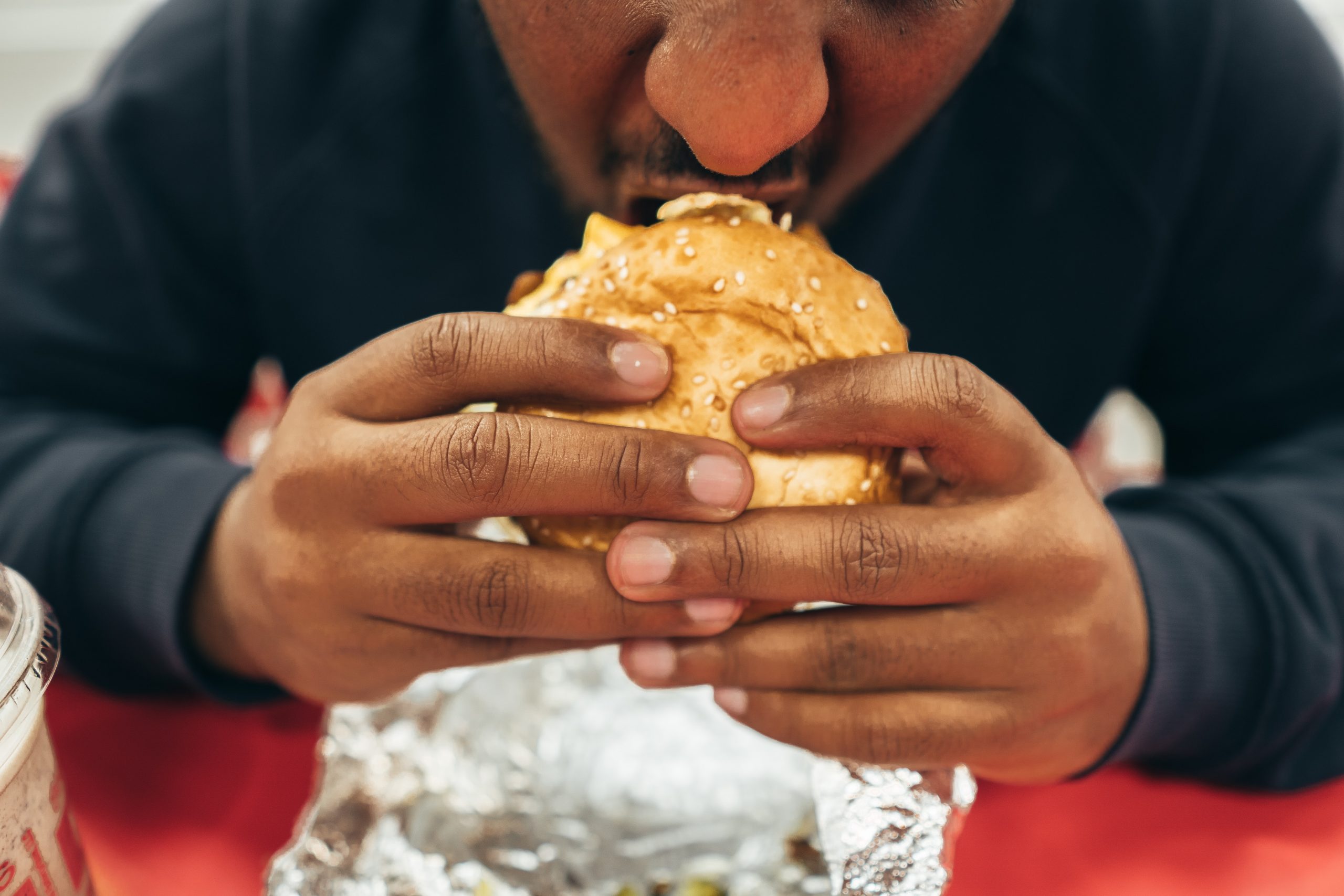
Have you ever found yourself craving, and eating a slice, maybe two, or should we just say the entire box of a medium-sized pizza because it was a really “bad day”?
Does it sound like ice cream, chocolate, or a big plate of rice for you?
In Nigeria, we justify by saying we cannot coman kill ourselves, right?
Eating for any other reason apart from hunger is what we call Emotional eating. We can also describe it as eating in response to an emotion or stress eating.
When you are emotionally eating, “healthy” is not the watchword. Look at the food options I suggested above, they are all the sinful, diet crushing, and forbidden foods. This is because emotional eaters tend to crave high-calorie food with very low nutritional value or tend to overeat.

Understanding Emotional Eating
Certain authors have considered overeating synonymous with emotional eating (this should not be mistaken for binge eating).
As humans, we experience both positive and negative emotions depending on the type of events and our experience. This means that people can emotionally eat in response to both emotions.
For example, people eat at different occasions to celebrate certain victories all because they are in a “good mood” or eat because they deserve a treat after a work well-done.
The same goes for eating to feel better when in a bad mood or simply just bored, stressed, or lonely (virtually any emotion that makes you eat more than you usually do).
The rationale is using food as an escape method to cope with some internal struggles instead of dealing with the root cause of the struggle. This can result in obesity, food addiction, and binge eating, among others because it interferes with healthy food decisions.
Discover amazing ways to live your best life.
Delivered to your email every Tuesday and Saturday
Signs of Emotional Eating
- Having a meal even when you are not hungry
- Using food to feel less stressed
- Eating to feel better
- Use food as a reward
- When you use food as a distraction from what is really bothering you
- Have trouble losing weight because of the way you eat
- Eating to feel happy
- Thinking of food even when full
Common Causes of Emotional Eating
- Boredom
- Depression
- Loneliness
- Stress
- Happiness
- Feelings of emptiness
- Loss of a loved one or a job
- High dietary restraints
- Poor bodily awareness
- Diet/ food preparation procrastination or planning
- Poor emotional regulation
- Conditioning learning (association of food with reward, satisfaction or comfort)
Tips to Deal with Emotional Eating
Recognize your triggers:
It is important to take note of your emotions per time and how you respond to them. You can achieve this by journaling every time you eat. Take note of how you feel before eating and what led to the feeling. This will help you discover if you eat because of hunger or for other reasons.
Reduce the Temptation:
Clear out junk food from your refrigerator or anywhere around you. The goal is to make it difficult for you to reach those comfort foods when you are triggered.
Clarify your relationship with food:
You need to understand that food is not a way to solve problems but for sustenance. Reminding yourself can help develop a better relationship with food.
Distract yourself:
Whenever you feel triggered to comfort eat, you can engage in activities that take your mind of the food such as taking a walk.
Seek support:
Seek support in managing your emotions and emotional eating. You can get support from family and friends and families or an anonymous community such as Overeaters Anonymous
Deal with the root cause:
Sometimes, you can find it difficult to understand why you emotionally eat. You can seek support from our therapists at 360Psyche to help you deal with the issue. You can get therapy and counseling face-to-face in Lagos and Abuja, and online from anywhere in Nigeria or the world.
I hope you found this article enlightening. Don’t forget to drop a comment.
Discover amazing ways to live your best life.
Delivered to your email every Tuesday and Saturday